Page 22 • (345 results in 0.034 seconds)
-
Leading the fight Mark Twain once complained that everybody talks about the weather but nobody does anything about it. With apologies to Twain, I’d like to suggest that many people today are talking about global health but nobody seems to agree on what to do…
watching in frustration as many died from diseases that easily could have been prevented or treated in the United States or Europe. Generally speaking, it was a poorly funded, neglected field handled by a relatively small cadre of dedicated folks working on shoestring budgets. The answer to the “Why does it matter?” question was that, back then, all this really didn’t much matter – at least when measured in terms of money, political will or media attention. AIDS, of course, has been a big and highly
-

If you’re in the middle of applying to colleges, chances are you’ve heard about the Free Application for Federal Student Aid (FAFSA). Filling out the FAFSA is one of the best ways to make sure colleges, including PLU, can put together a financial aid package…
also open in December, so be sure to mark your calendar.Start now, and by the time the FAFSA opens in December, you’ll be ready to make the most of your financial aid opportunities! Read Previous YouTube Short: PLU Parkland Night Market & Taste of Garfield Street Read Next Major Minute Monday: Political Science LATEST POSTS PLU Scores 4.5 out of 5 on Campus Pride Index: What does that mean? November 21, 2024 YouTube Short: A quick campus tour and Lute lingo with Zari Warden November 19, 2024 Major
-
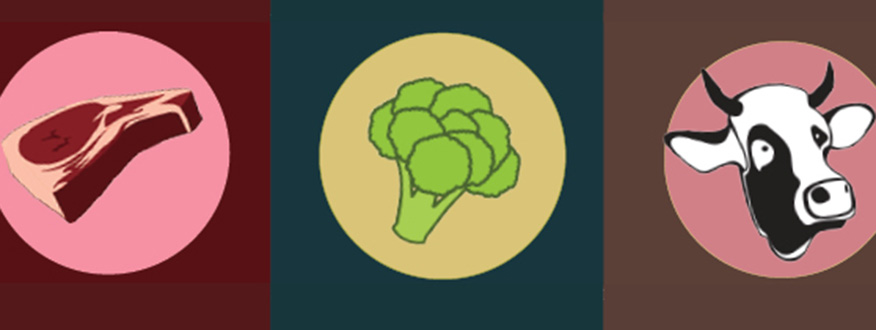
What goes into the production of a quarter pound burger? According to J.L. Capper in The Journal of Animal Science, 6.7 pounds of feed, 52.8 gallons of drinking water, 74.5 square feet of grazing, and the equivalent amount of energy it takes to run a microwave…
Philosophy from Penn State University. He regularly teaches courses in ethics, social and political philosophy, and business ethics, as well as courses in early modern philosophy, 19th and 20th century continental philosophy, and the philosophy of race. “Many have begun to consider seriously the ethics of producing food under such conditions and, indeed, the ethics of eating animals in general. I look forward to participating in a public debate about these issues in order to bring them more clearly into
-

Museums collect and interpret objects, and the stories they tell with their collections articulate cultural identity and values. Based in the historic university city of Oxford, this J-term 2020 class will explore how museums make meaning. Students will study numerous examples of contemporary museum theory…
previously studied in classes on PLU’s campus—a very exciting prospect. The study away class includes both art majors and minors as well as students enrolled in PLU’s International Honors (IHON) program. This experience will encourage students to take a critical look at the way that museum collections and exhibitions are intertwined with things like national cultural identity, political goals, and education. Students are challenged to be curious about the ways that art, architecture, archaeology, and
-
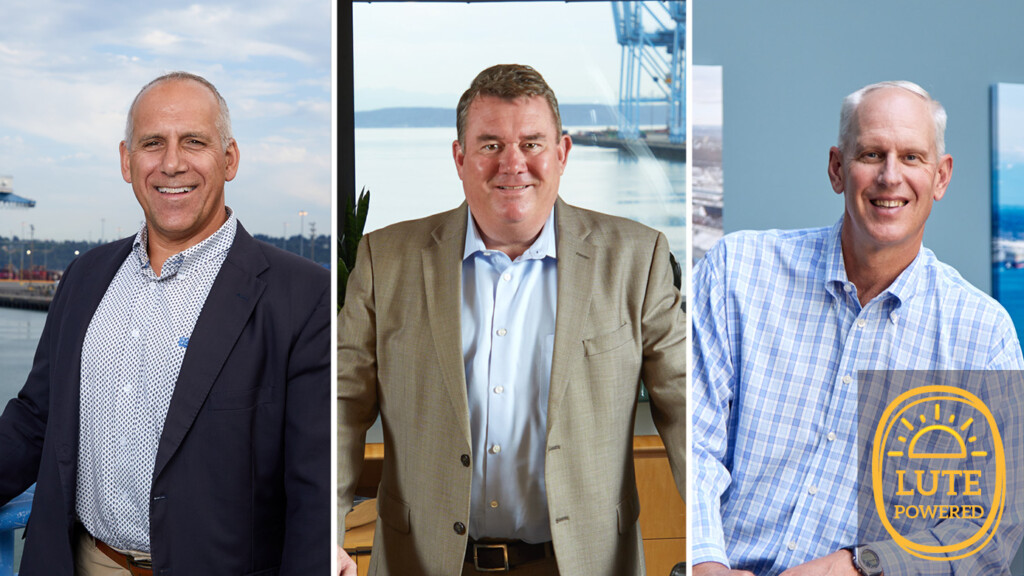
Together, the ports of Tacoma and Seattle are the fourth-largest container gateway for containerized cargo shipping between Asia and major distribution points in the Midwest, Ohio Valley and the East Coast. For this installment of Lute Powered, we interviewed three PLU alumni who are serving…
PLU alumni who are serving in key leadership roles at the Port of Tacoma and the Northwest Seaport Alliance. Eric Johnson ’83, Port of Tacoma Executive Director When Eric Johnson ’83 majored in political science and minored in biology, he wasn’t sure how the two would fit together in a career. After he graduated from PLU, he earned a Master of Public Administration from the University of Washington and began his career working at the state legislature. He then spent 35 years working at Washington
-
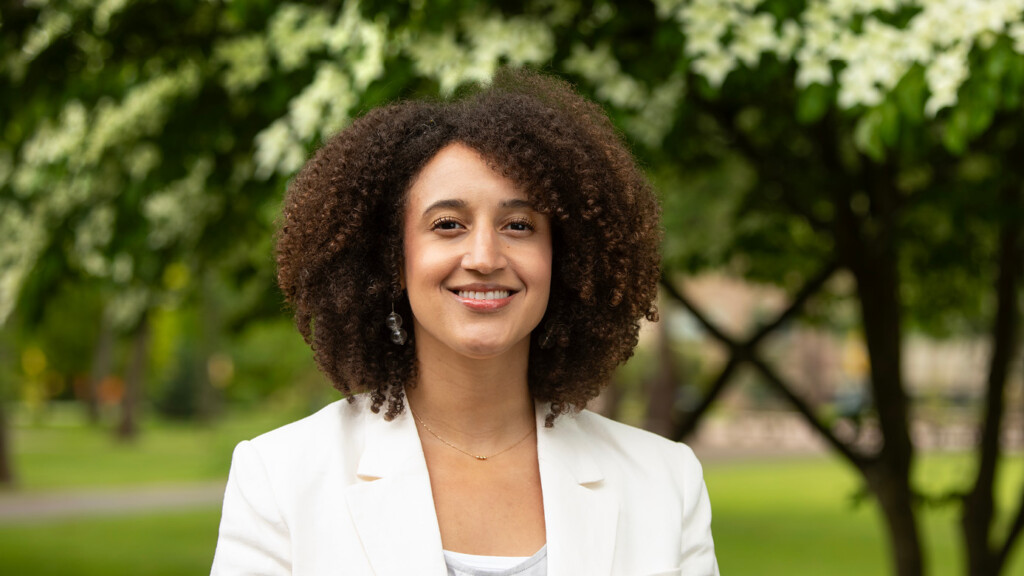
Shalita Myrick, Pacific Lutheran University’s new chief operating officer and vice president for administrative services, has one major takeaway after completing her first week on the job. “This is the most open and welcoming community I’ve ever been a part of,” she says. Throughout the…
collaborator on the president’s and executive councils. Myrick holds a master’s degree in facilities management from The University of Texas at San Antonio and a bachelor’s degree in political science from Spelman College. She is also a graduate of the Los Angeles African American Women’s Public Policy Institute and serves the International Facilities Management Association’s Academic Facilities Council as the chair for young professionals. Myrick succeeds Kate Boyle, who served as PLU’s Interim COO after
-

Associate Professor of Biology Jacob Egge works with students during a summer semester research project. (Photo by PLU Photographer John Froschauer) Faculty-Student Research Provides a Cornerstone of the PLU Mission By Pacific Lutheran University Marketing & Communications and the Office of the Provost This year’s…
, removing trade barriers, opening investment flows and aggregately reducing the provision of social services and support to rural and poor populations. A prominent feature of the neoliberal political-economy has been not only the increase of migration as an economic strategy, but also the elevated presence of nongovernmental organizations (NGOs) doing work in development, with a diverse spectrum of practices and philosophies. Through my experience in Pacific Lutheran University’s Oaxaca study abroad
-
From Microsoft to Martin Luther, and back again In 1994, Mike Halvorson was the first one to write a book about something nobody else cared about. The book? How to use a little-known software program called Microsoft Office. We can guess how that turned out.…
described it, he “pushed the re-set button.” He decided to earn his master’s – then his Ph.D. – in European history. And soon thereafter, he found himself back at his alma mater teaching about Martin Luther and Reformation Germany (and writing books about the subject, of course). He realizes it is an odd combination: Not many people are experts in cutting-edge computer programming and 500-year old political and religious history. He’s also aware that some people might suggest that, in studying 16th
-
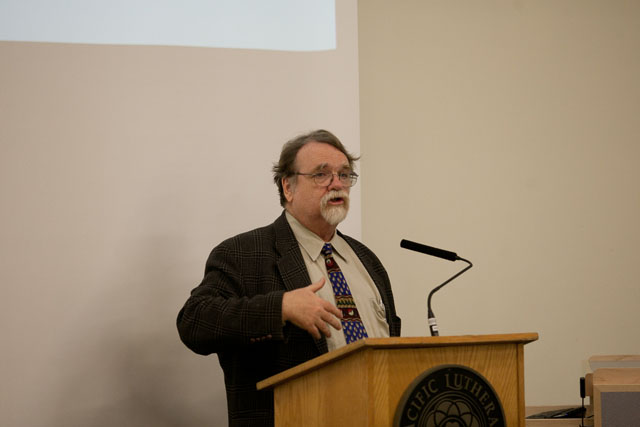
Paul B. Thompson, the W.K. Kellogg Chair in Agricultural, Food and Community Ethics at Michigan State University gave the keynote address for the Food Symposium. (Photo by Igor Strupinskiy ’14) Exploring food issues By Katie Scaff ’13 Food intersects with just about any social justice…
keynote address on three problems in food ethics from Paul B. Thompson, the W.K. Kellogg Chair in Agricultural, Food and Community Ethics at Michigan State University. About 50 students, staff, professors, and community members turned out for the event, including junior Political Science and Global Studies double major Kenny Stancil. “Food is just one of my general academic interests,” Stancil said. “I was intrigued when he pointed out both Singer and Sen’s frameworks for thinking about food ethics
-
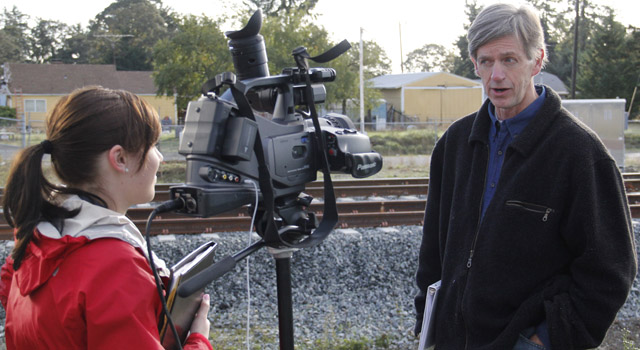
MediaLab documentary examines transportation issues in North America. (Photo courtesy of MediaLab) A look at ‘Sidetracked’ By Katie Scaff ’13 PLU student filmmakers have spent the last year researching the viability of improving rail infrastructure in the Pacific Northwest to help alleviate the problem of…
at universities along the Cascadia corridor, and at the Pacific Northwest Economic Region (PNWER) 2012 Annual Summit in July in Saskatoon, Saskatchewan. “It’s been an eye-opening experience,” said Rose. “I never knew the complex issues that surrounded transportation investments in our country and how much public demand played into that.” Anderson, a communication major concentrating in journalism, and Rose, a political science and global studies double major, are members of PLU’s MediaLab
Do you have any feedback for us? If so, feel free to use our Feedback Form.


